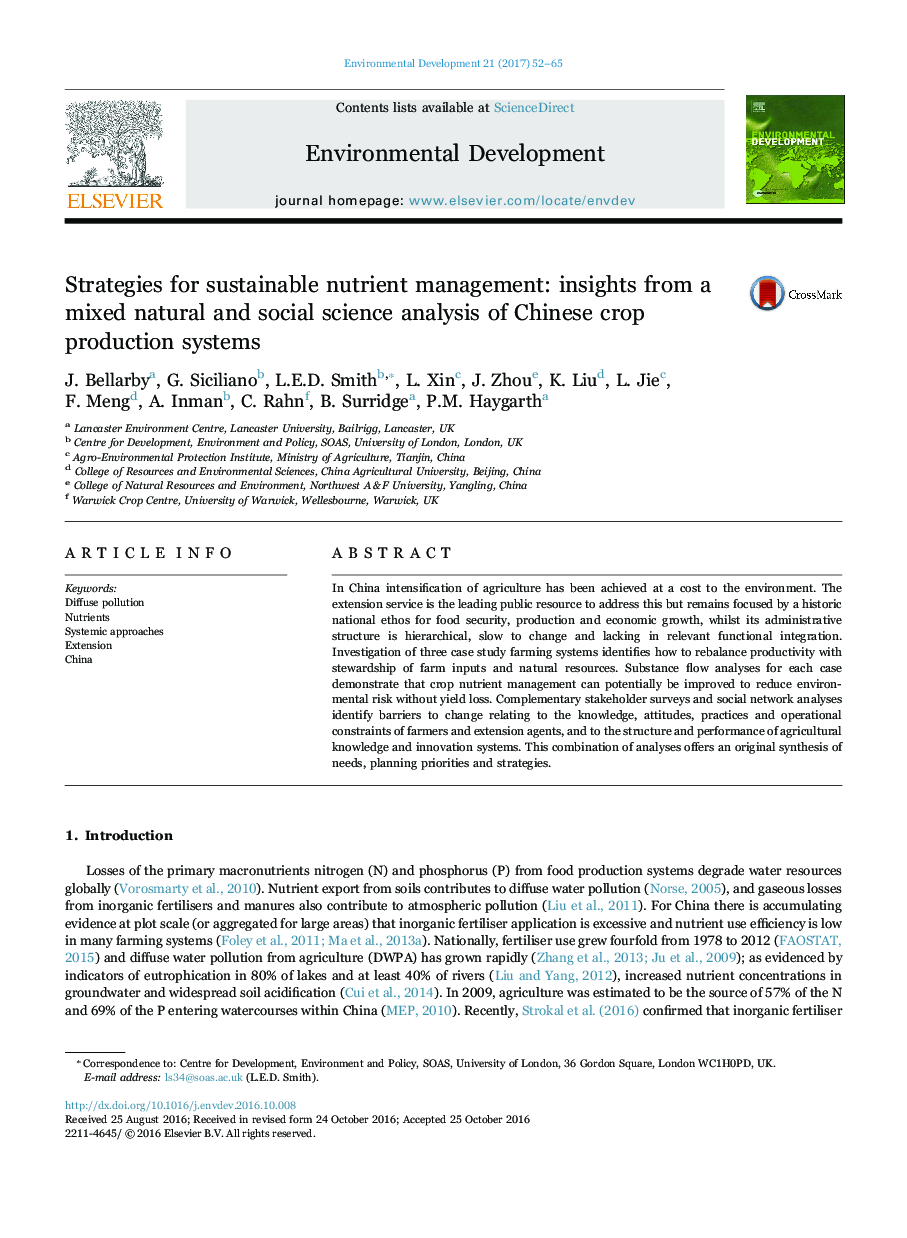| Article ID | Journal | Published Year | Pages | File Type |
|---|---|---|---|---|
| 5744162 | Environmental Development | 2017 | 14 Pages |
â¢Nutrient substance flow analyses for three agricultural systems in China.â¢Excessive nutrient input in each system risks soil, air and water quality impacts.â¢Soil nutrient stocks represent an under-exploited resource.â¢Potential to rebalance productivity with stewardship of natural resources exists.â¢There is need to re-orient agricultural knowledge and innovation systems (AKIS).
In China intensification of agriculture has been achieved at a cost to the environment. The extension service is the leading public resource to address this but remains focused by a historic national ethos for food security, production and economic growth, whilst its administrative structure is hierarchical, slow to change and lacking in relevant functional integration. Investigation of three case study farming systems identifies how to rebalance productivity with stewardship of farm inputs and natural resources. Substance flow analyses for each case demonstrate that crop nutrient management can potentially be improved to reduce environmental risk without yield loss. Complementary stakeholder surveys and social network analyses identify barriers to change relating to the knowledge, attitudes, practices and operational constraints of farmers and extension agents, and to the structure and performance of agricultural knowledge and innovation systems. This combination of analyses offers an original synthesis of needs, planning priorities and strategies.
